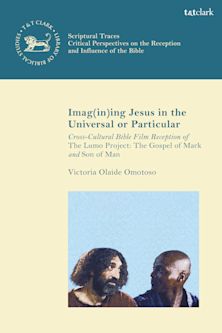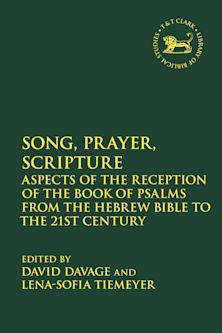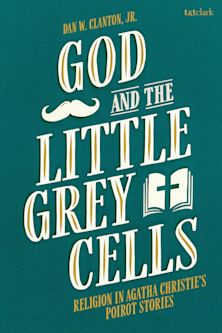Preaching that Confronts Confederate Monuments
Religion, Anti-Racism, and United States Politics
Preaching that Confronts Confederate Monuments
Religion, Anti-Racism, and United States Politics
Description
Confederate monuments preach-at times subtly, at other times overtly-about who we are, who God is, and how we should live together. David M. Stark looks at the way many Confederate monuments provided ongoing opportunities for commemorative speeches and ceremonies that would entrench racist and white supremacist ideologies in the American South.
Stark examines key speeches and proclamations given around monuments to the Lost Cause, such as Julian Carr's Silent Sam speech (1913), and Archer Anderson's speech at the dedication of a monument to Robert E. Lee (1890), reading these as theological and homiletic moments. Stark then moves on to construct a homiletic that can confront such monuments and the racist preaching ideologies around them.
In developing this counter-homiletic, Stark analyzes the preaching strategies written into Confederate monuments and highlights best practices from recent counter-proclamations that deconstruct the troubling rhetoric and theology of Confederate monument dedication speeches. Finally, Stark presents insights from naming commission reports and clergy interviews about the values, mission, and leadership needed to work for ongoing change.
Table of Contents
Abbreviations
1. Introduction
a. Confederate Monuments and the Church
b. Confederate Monuments within U.S. monumental culture
c. Preaching and Monuments
d. Preaching Monuments
2. Moving Mountains: De-centering the Presence and Preaching of Confederate Monuments
a. A Theological and Homiletical Reading of the Presence and Preaching of Confederate Monuments
b. Preaching that De-centers the Presence and Preaching of Confederate Monuments
c. Moving Mountains: Preaching as Collaboration with Monument Removal, Relocation, and Recontextualization
3. When the Stones Cry Out Perversely: Preaching that Confronts the Proclamation of Monuments to the Lost Cause
a. Orality, Monuments, and Meaning-Making
b. Rhetorical Analysis of Confederate Memorial Dedication Speeches and Resistance Speech
c. Preaching to Confront Monuments to the Lost Cause
4. When the Stones Cry Out Perversely: Preaching that Confronts the Proclamation of Monuments to the Lost Cause, Case Study 1: Chapel Hill, North Carolina
a. Julian Carr's Speech at the Dedication of Silent Sam, 1913
b. Contemporary Proclamation that Confronts Julian Carr's Silent Sam Speech
c. Preaching to Confront Monuments to the Lost Cause
5. When the Stones Cry Out Perversely: Preaching that Confronts the Proclamation of Monuments to the Lost Cause, Case Study 2: Richmond, Virginia
a. Archer Anderson's Speech at the dedication of the Monument to General Robert E. Lee, 1890
b. Contemporary Proclamation that Confronts Archer Anderson's Dedication Speech
c. Preaching to Confront Monuments to the Lost Cause
d. Homiletical Reflection: Preaching as Confrontation and Change Agent
6. Standing up to Nebuchadnezzar's Statues: What Naming Commissions Can Teach Preachers about Confronting White Supremacy
a. A brief history of Naming Commissions in the U.S.
b. Naming Commissions as Institutional Equivocation
c. Naming Commissions as a Way to Mark Institutional Change
d. Standing Up: Preaching toward Transformation
7. Preaching Stones, Living Monuments: A Conclusion
a. (Re)membering Space: Sewanee's Black Heritage Trail
b. Bringing Monuments Home: A Pilgrimage to the Memorial for Peace and Justice
c. (Re)Moving Mountains: Sermons Etched on Hand and Heart
Bibliography
Index
Product details
| Published | 30 Oct 2025 |
|---|---|
| Format | Ebook (PDF) |
| Edition | 1st |
| Extent | 200 |
| ISBN | 9780567719829 |
| Imprint | T&T Clark |
| Series | T&T Clark Library of Homiletics |
| Publisher | Bloomsbury Publishing |
Reviews

ONLINE RESOURCES
Bloomsbury Collections
This book is available on Bloomsbury Collections where your library has access.



































